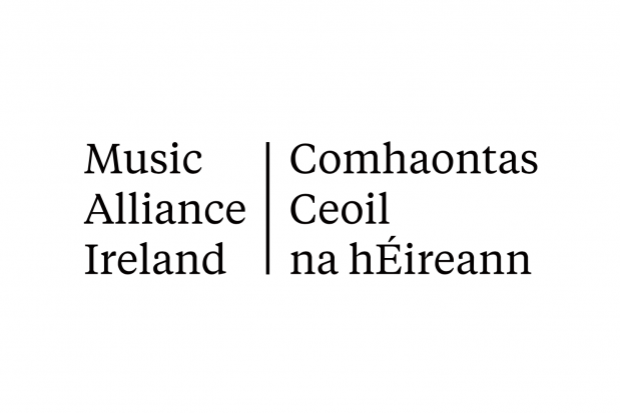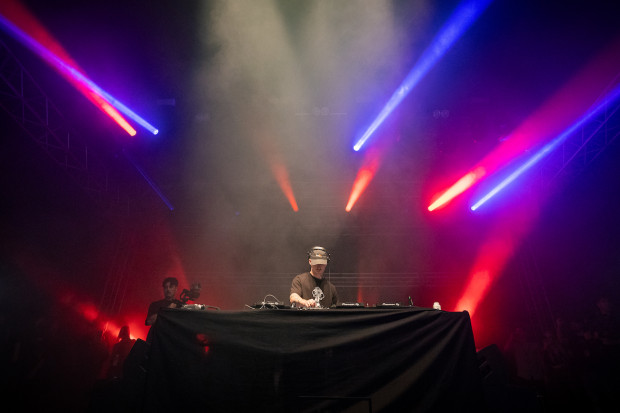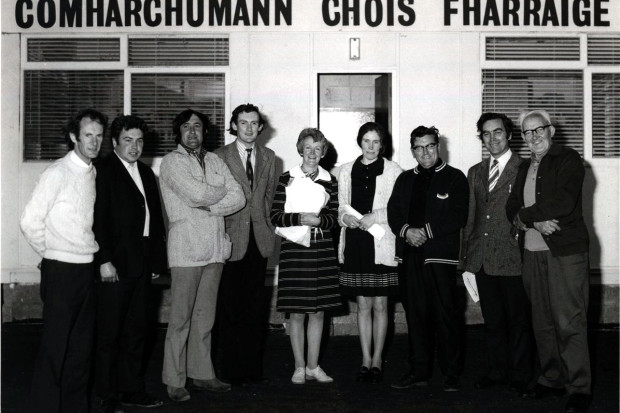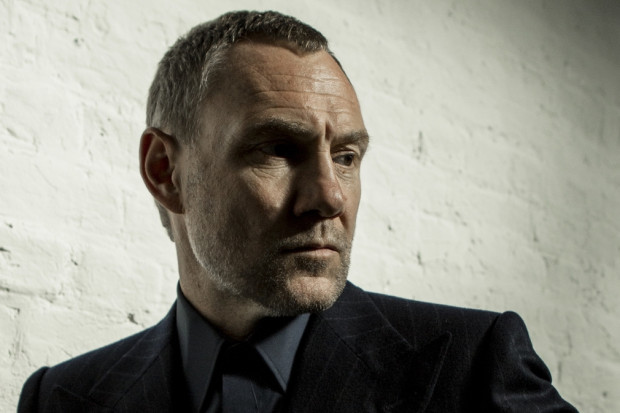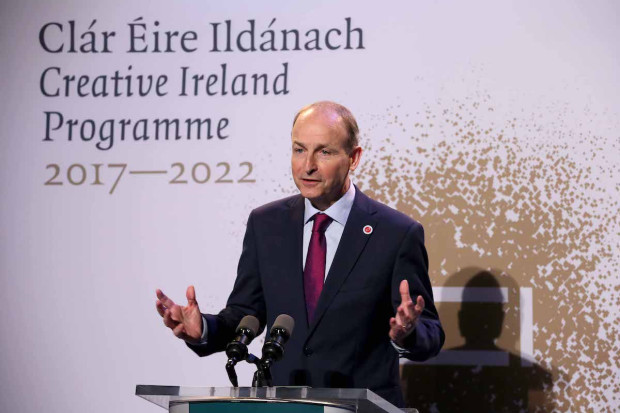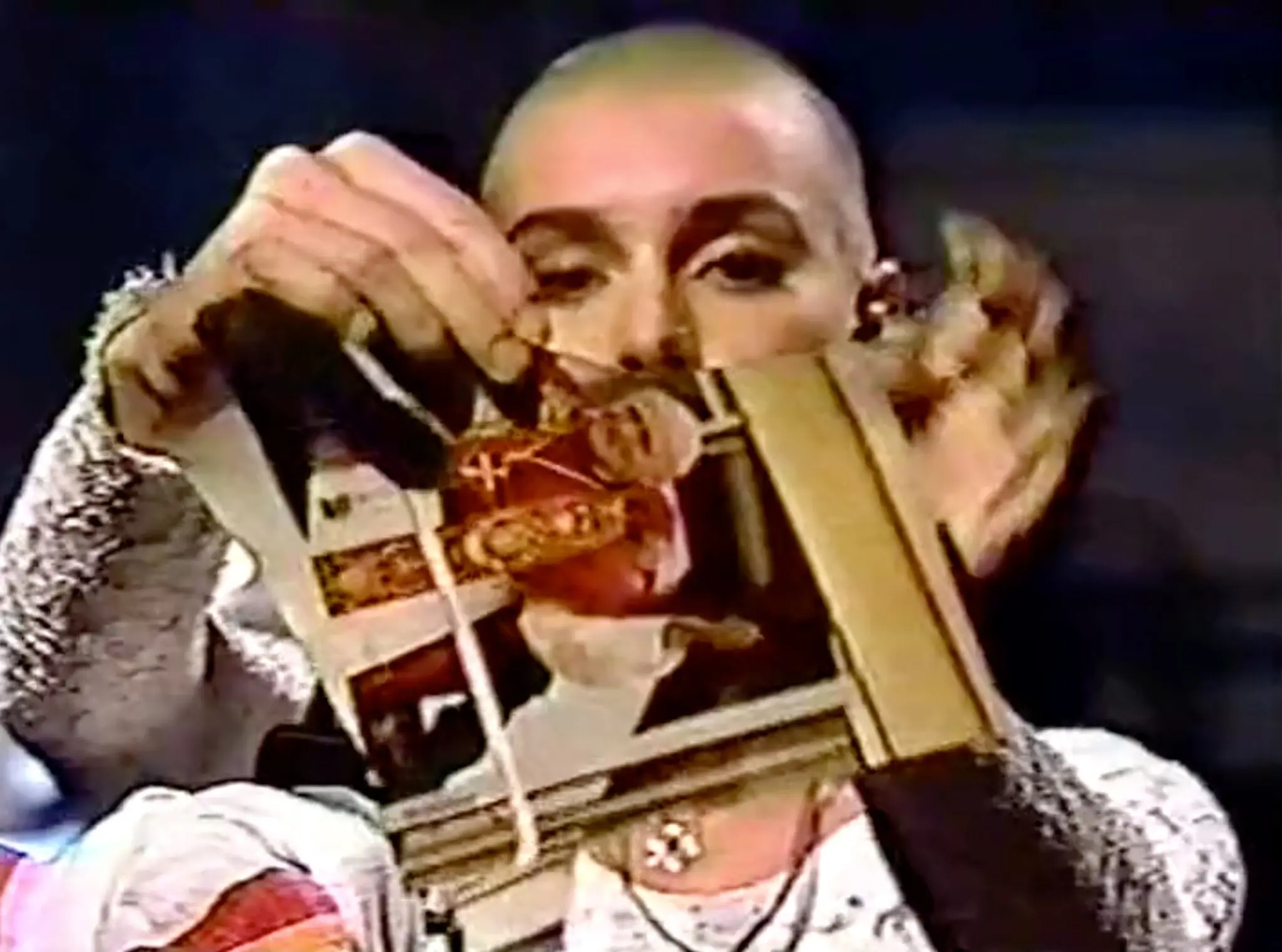
Sinéad O'Connor on NBC's 'Saturday Night Live' in 1992.
How Ireland Treats Its Free Thinkers – The Life and Death of Sinéad O'Connor
‘Thank you, Sinéad!’, ‘We love you, Sinéad!’, they called as her cortège moved along the Bray seafront. They threw roses and white feathers onto the hearse, sang ‘Nothing Compares 2 U’, applauded and wept. Messages written on small rocks taken from the beach were left outside her house. A note read ‘Thank you for the lessons and truth’. Sinéad O’Connor’s musical and activist journey, which for almost four decades was intertwined with her public suffering, has ended with her country mourning her, celebrating her, people of all ages saddened, shocked and grateful. The camper van leading the procession down Strand Road where she lived for fifteen years played Bob Marley’s ‘Natural Mystic’: ‘There’s a natural mystic blowin’ through the air / If you listen carefully now you will hear’.
She was a truth-sayer. ‘Express yourself no matter what anybody fucking says!’ she shouted at us unworldly teenagers at the Irish Recorded Music Association awards in Dublin in 1991 after singing ‘I Do Not Want What I Haven’t Got’ entirely solo. She was 24. Towards the end, tears came into her eyes and she began to tremble. She swept herself away from the stage. We didn’t understand, but over the next three decades she went on to show us what she meant.
After she died in Herne Hill, South London, on 26 July, ‘the depth of her fearless commitment’, as President Michael D. Higgins described it, was widely remarked upon. But how did Ireland respond to this free thinker while she was alive? And what do we as a society need to think about now that we have lost her?

Crowds gather for Sinéad O’Connor’s cortège on Bray seafront (Photo: Tim Fleming)
Create a conversation
The mystery of O’Connor is that she kept coming back to us. I know she rationalised it in recent years: she told the BBC in 2021 that ‘Irish artists… we’re kind of different, we feel like our job is to create conversation where it’s needed… and then run … we just run and we let you all get on with arguing, screaming and shouting or talking about the subject that needed to be talked about’.
But O’Connor never did run. She put herself at the heart of the argument, whether through refusing the American national anthem at a concert in the US, ripping up a picture of the pope on prime-time American television, singing Bob Marley’s ‘War’ to a booing crowd of thousands at Madison Square Garden two weeks later, publishing an open letter in the Irish Times asking her country to ‘Stop hurting me’, getting a taxi to Channel 4 during a live television discussion on the Irish church so she could participate in the last ten minutes, releasing ‘This is a Rebel Song’ during the Northern Ireland peace negotiations in the run up to the Good Friday Agreement, becoming ordained as a priest and appearing on the Late Late Show in full religious garb with Roman collar, commenting on Irish and international politics and religion in every media interview, writing an open letter to Miley Cyrus about the music industry, engaging on Twitter with thousands of fans, and speaking openly and consistently about her mental health difficulties. She was inspired by Bob Dylan’s 1979 dictum ‘Gotta Serve Somebody’, but still, no one would expect this kind of faith driven self-sacrifice over decades. She had given us all so much already.
‘If anyone wants to truly know me, the best way is through my songs,’ she wrote in her 2021 memoir Rememberings. Her albums point to a source of strength: the ten recordings swing between powerful, brave and pugilistic statements on contemporary society to soft, comforting nostalgic trips through the past. It was as if she was using sets of albums for healing and restoration. Her debut The Lion and the Cobra is musically adventurous, radically different to the popular Irish rock of the late 80s, and including Enya reciting a religious psalm in Donegal Irish, while the breakthrough I Do Not Want What I Haven’t Got from 1990 has more direct lyrics, which, combined with her extraordinary voice, connected with a wider audience. Her ability to draw together so many sounds and approaches into a coherent musical statement, from Irish folk to Prince, was remarkable.
But whoever thought they now knew O’Connor artistically, or could predict her next steps, was wrong. Am I Not Your Girl? (1992), a collection of jazz, country and pop covers including ‘Don’t Cry for Me Argentina’ was a clear rejection of expectations, while Universal Mother in 1994, with songs like ‘Fire on Babylon’ and ‘Red Football’, saw her step forward again. The intellectual brilliance of ‘Famine’ still requires deep listening; ‘John I Love You’, ‘In This Heart’ and ‘Thank You For Hearing Me’ levitated above everything.
After Universal Mother and her fine Gospel Oak EP (1997), her music was increasingly overshadowed by the media drama around her personal life, but her craft also seemed to lose something. The diary-like Faith and Courage (2000) has songs like ‘Daddy I’m Fine’ and ‘Jealous’ but doesn’t have the musical risk-taking of earlier recordings. Sean-nós Nua (2002), exploring Irish folk, seems to be restorative, like a cultural touchstone, while Throw Down Your Arms (2005) reaches for a different inspiration: classic reggae songs. In her early forties, she released Theology (2007), a collection of scripture set to music. In this mature album, she inverts her approach, drawing us in with quiet wandering verse, although arguably the highlight is her version of Curtis Mayfield’s 1970 anti-racism song ‘We People Who Are Darker Than Blue’. In How About I Be Me (and You Be You)? (2012), too many lyrics lack the creative energy and questing towards originality of her earlier work, and yet the direct messaging of ‘I Had a Baby’ and ‘VIP’ make them impossible to forget. I’m Not Bossy, I’m the Boss (2014) faces the same musical challenges, but again songs like ‘8 Good Reasons’ and ‘Take Me To Church’ force you to return to them.
What never seemed to fade was the majesty of her voice. It appeared to work on several levels: a breathy quiet whisper, a soft innocent mid-range, an aggressive curl at times, an angelic falsetto, a high vocal wail, with a Dublin drawl coming through now and then. This all added to the complexity of her songs: you never knew which direction they might take. Her songwriting often resisted the verse-chorus dynamic orthodoxy. ‘Feel So Different’ and ‘Troy’ hold a careful tension for most of the song, only bursting forward towards the end.
Forcing people to think
But over these four decades of music, performance and activism, how did Ireland respond to this artist? There were plenty of headlines, but hardly any books were written about her or her music in her own country during her lifetime, and O’Connor was always alone in her media appearances here, never part of a discussion. Musicians, writers and actors in Ireland often double as public intellectuals, speaking out on issues from health to housing, partly because they are the only figures Irish people now trust as they appear unassociated with institutions, but also because there are few forums for thinkers from other backgrounds. The political scientist Tom Garvin wrote in 2012 that the ‘first role of the public intellectual is to encourage or even force people to think’, and O’Connor certainly did that, but it often seemed that her country did not have the intellectual energy to engage with her. Instead, the response was a collective shrug. ‘It’s just Sinéad’, ‘she’s not well’, people would say, explaining her away. Journalist Róisín Ingle remembers the reaction to her in Ireland in the 1990s in the film documentary Nothing Compares (2022): ‘Oh God, what’s she doing now?’
Irish society couldn’t, and didn’t care to, disentangle her intellectual arguments from her emotional hurt, because it never figured out which was coming from where, but that doesn’t fully explain it. The deeper reality is that, in Ireland, when free thinkers have the courage to speak out, they rarely become part of a collective discourse. They meet silence, or ridicule, and often are subject to personal attacks, and they are left isolated. ‘I regret that I spent so many years alone and isolated,’ O’Connor said in Nothing Compares. Isolation and silence frustrate the free thinker, and they become more provocative and extreme because they are perplexed by it: are the questions they are asking not valid, not deserving of some response? It makes them despair, maybe even becoming the ‘crazy bitch’, as the singer referred to it in the film. The silence that surrounds dissenters is, we know well, an Irish fear: a long-held, deeply felt apprehension of being associated with the trouble-maker, the danger-maker, the dissenter. It is a lesson learned from our colonised, violent history: if they speak up, we all go down. Say nothing and let it pass. O’Connor knew this traditional Irish practice but would not, or could not, stay silent. ‘Out of Ireland I have come / Great hatred and little room / Maimed us at the start / And now home just breaks my heart’, she sang in ‘The Lamb’s Book of Life’ on Faith and Courage.
Ireland’s sacrificial lamb Sinéad O’Connor is gone now, but if her life and death is to mean something more to Irish society, it should mean a new appreciation of the dissenter, those we disagree with, those we don’t understand. Our country is veering down the direction of so many others: division, hatred and suspicion of the other. There can be no solidarity if we engage in derision. We need to find our intellectual curiosity again, our energy for open talk, not the point-scoring, like-seeking social media kind, nor the one-sided box-ticking corporate-controlled media exercise that we are often fed, or the monologue by which the independent thinker is given enough airtime to sound off but little engagement with their ideas. If we continue on the path of disinterest, ridicule or silence, we will fall well short of O’Connor’s example. She set herself an incredible challenge when she sang Marley’s ‘War’: ‘Until the philosophy which holds one race superior and another inferior / Is finally and permanently discredited and abandoned / Everywhere is war… I’ve got to say war.’ Sinéad’s war is over, but she showed us how and when to fight, when to join together, and, of course, when to sing.
Subscribe to our newsletter.

Sinéad O’Connor’s cortège travels down Bray seafront (Photo: Tim Fleming)
Published on 14 August 2023
Toner Quinn is Editor of the Journal of Music. His new book, What Ireland Can Teach the World About Music, is available here. Toner will be giving a lecture exploring some of the ideas in the book on Saturday 11 May 2024 at 3pm at Farmleigh House in Dublin. For booking, visit https://bit.ly/3x2yCL8.











